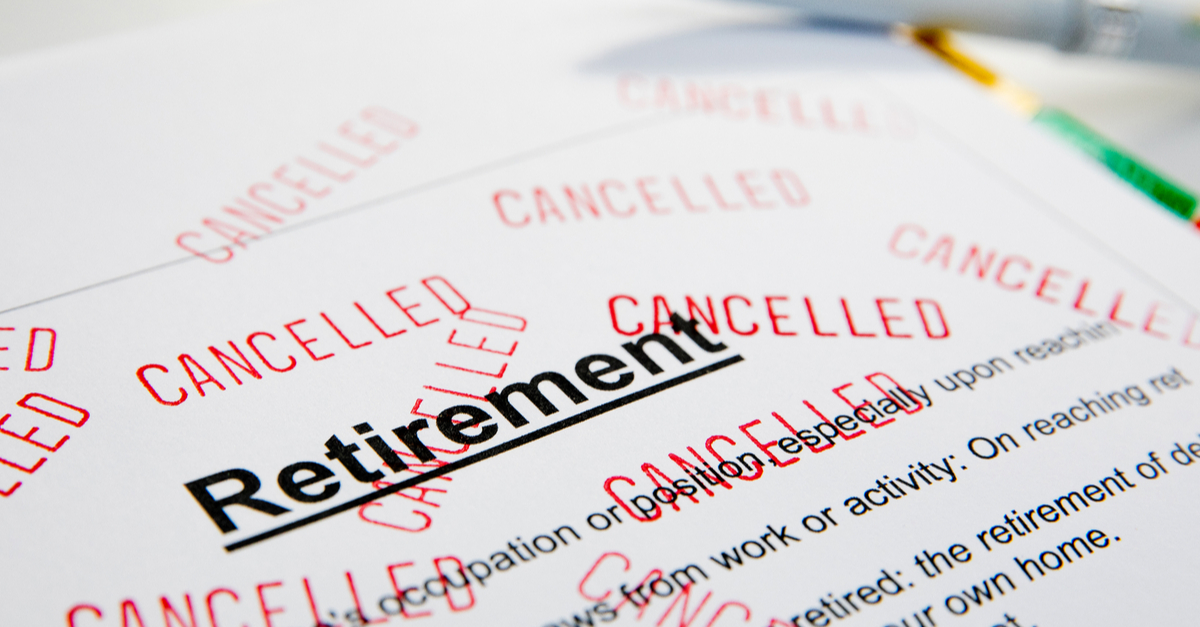Several professional bodies, advice firms, and workplace pension providers have called on the Government to make changes to auto-enrolment to avoid the UK sleepwalking into a retirement crisis.
In our latest insight article, we look at the suggestions that have been made and why they may be necessary to address the state of the nation’s personal finances.
According to the Pensions and Lifetime Savings Association (PLSA), over half of workers who have yet to retire (56%) are worried that they are failing to save enough for retirement. Only one in five are confident that they are saving enough in their pension to let them live the “lifestyle they want” when they stop working.
Just four in ten pension savers are on track to achieve a ‘moderate’ level of income, as defined by the PLSA retirement income standards, according to a recent report from workplace pension provider Hargreaves Lansdown.
The PLSA standards say a single person would need a retirement income of £20,800 per year to achieve a moderate standard of living while a couple would need £30,600.
Generation Z are least likely to be on track with their savings with only 17.7% on track to hit this target.
Of the highest income bracket measured by the Hargreaves Lansdown Savings and Resilience Barometer, 71.5% are on track to hit this target. It then drops steeply for the next highest income group to 47.2%.
So what has the industry suggested could be done to rectify the shortfall?
A recent report into the performance of auto-enrolment from MPs on the Work and Pensions Select Committee has spurred debate around auto-enrolment reforms from both MPs and the pensions industry.
Several professional bodies, advice firms, and workplace pension providers have called on the Government to make changes to auto-enrolment.
In February the PLSA called on the Government to ‘level up’ workplace pensions by rebalancing auto-enrolment contributions over the next decade so that employers pay the same as employees. It said that employers should pay in 5% of a worker’s salary into their workplace pension.
The PLSA says this will result in no higher contributions for employees, but employers should be asked to increase contributions from 3% to 5%. It will also mean total pension contributions increase from 8% to 10%.
The body said the Government should also consider a further 1% increase for both employer and employee in the early 2030s, bringing total auto-enrolment pension contributions to 12%.
In its call for levelling up, the professional body also called for an extension to the current region to include younger people and pension saving from the first pound of earnings, as promised by the Government in its own review of auto-enrolment in 2017.
Nigel Peaple, director of policy and advocacy at the PLSA, said: “Current contribution levels are not likely to give people the level of retirement income they expect. People’s inertia has driven the success of automatic enrolment in helping millions of people to save for their retirement, but inertia also means they assume that the statutory minimum is the right level. In many cases this is not the case.
“As the Government seeks to ‘level up’ the economy, narrowing wealth disparities between regions and different demographics, we think now is the right time for the Government to commit to levelling up pensions, gradually, over the next decade, in three affordable steps.”
A report from think tank Onward in January said that abolishing the £10,000 earnings trigger and the £6,240 lower earnings limit, as well as reducing the age threshold, could see a full-time worker on the national living wage gain a 60% increase in their workplace pension savings
The Department for Work and Pensions has previously said it has plans to extend auto-enrolment to 18 to 22-year-olds, but not until the mid-2020s.
Workplace pension providers and advisers have also called on the Government to bring planned extensions for auto-enrolment forward.
Aegon is one of several workplace pension providers to call on the Government to extend auto-enrolment to include younger and lower-paid workers.
Kate Smith, head of pensions at Aegon, said: ““Implementing the 2017 review recommendations and extending its reach to include 18 to 21 year-olds will go some way to support the government’s levelling up agenda. This allows this group to start saving earlier, and benefit from a valuable employer pension contribution.
“For this reason we’re supportive of this happening as soon as possible along with a plan to base auto-enrolment contributions from the first pound of earnings.”
Comments made by Pensions Minister Guy Opperman in Parliament in January during a debate on pensions automatic enrolment, were described as “hugely disappointing” by industry commentators, with no timings given to any reform of auto-enrolment.
Former pensions minister and partner at pension consultancy LCP Sir Steve Webb said good intentions are not enough and the Government needs to take action.
He said: “The government needs to realise the urgency of this issue. A whole generation of people who missed out on [defined benefit] pensions and are only building up modest [workplace] pensions could be set for a miserable retirement unless the pace of change is increased.”
Those making calls for reforms to auto-enrolment were further frustrated by the Government choosing to hold the auto-enrolment trigger threshold at £10,000 this year.
Andrew Tully, technical director at annuity, investment and equity release provider Canada Life, said: “Freezing the AE threshold at £10,000 still means more workers will be auto-enrolled as their earnings increase above £10,000.
“However, it fails to address the major issue which is the many people – mostly women – who earn below £10,000, or have multiple jobs each of which are below £10,000, who aren’t auto-enrolled.
“We know automatically enrolling people in a pension has been a huge success, now we need to extend that coverage to more people who are currently missing the opportunity to benefit from their employer’s pension contributions.”
There are also calls for auto-enrolment reform from some within the Conservative party.
Conservative MP Richard Holden tabled a motion to extend automatic enrolment for debate in the House of Commons in January.
His Pensions (Extension of Automatic Enrolment) Bill would see working 18 to 22-year-olds, and those who work part-time or receive low pay, automatically enrolled into a pension scheme.
Further debate was tabled by Conservative MP Gareth Davies towards the end of the month.
Tom Selby, head of retirement policy at AJ Bell, is not so confident that auto-enrolment should be extended to lower earning and younger workers.
He said: “For very low earners in particular it is likely immediate priorities – such as paying bills and building up a rainy-day fund if they can afford to – will be more important.
“The need to build greater short-term financial resilience – exposed so brutally by lockdown -may be considered at least just as important as boosting longer term savings.
“What’s more, the full flat-rate state pension currently pays £9,339 a year, meaning for anyone earning less than this it represents a ‘replacement rate’ of over 100%. Many would argue this safety net justifies excluding those earning below £10,000 from auto-enrolment – although of course there are no guarantees over how much the state pension will pay or when it will be paid over the long-term.”
Advice firm Quilter has also criticised proposals for changes to auto-enrolment in the short term, saying that implementing a lower age for auto-enrolment risks increased opt-out rates due to the current cost of living crisis.
Jon Greer, head of retirement policy at Quilter, said: “While there is no disagreement that automatic enrolment has been a resounding success and that the government should consider expanding it to those not currently captured by the legislation, it doesn’t seem that making the change in the short-term is appropriate.”
With Pensions Minister Guy Opperman not yet committing to any timings for changes to auto-enrolment, it seems like the debate is likely to continue rumbling on for some months before any clarity or change will be made.





